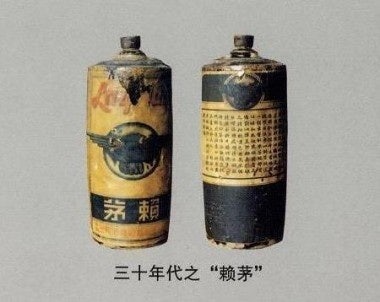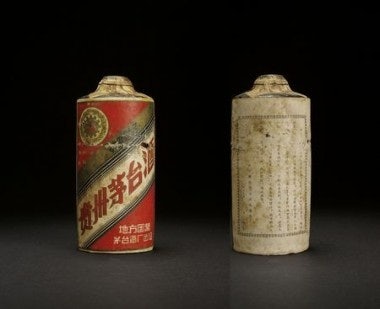More Than 1,000 Bottles Of Chinese Baijiu Auctioned Off By Beijing Poly#

1930s Nai Mao is very hard to come by
The emergence of Chinese collectors as a major force in the wine world may be more widely reported in the English-language press, but in China, their appetite for the rare and expensive is also driving up prices for vintage bottles of baijiu, traditional Chinese distilled spirits. As Jing Daily wrote this February, the baijiu auction market is booming in mainland China, with rare vintages regularly selling for hundreds of thousands of dollars amid frenzied bidding. As Liu Yuan, general secretary of the National Association for Liquor and Spirits Circulation, recently said, this partly boils down to the pedigree, price and long history of the top baijiu brands, particularly Maotai. Said Liu, “Moutai has become China’s Louis Vuitton...Given the limited output and steep price, it’s a good way for officials to curry favor and for the rich to show off their wealth”.
Baijiu's boom-times show no sign of stopping any time soon. At a recent Beijing Poly auction in the Chinese capital, an extremely rare 1930s vintage from the distiller Nai Mao (赖茅), which eventually evolved into Maotai, sold for a whopping 2.6 million yuan (US$409,152) in a sale at which more than 1,000 bottles of baijiu met with intense bidding. As Ma Zhifei, head of Poly's vintage baijiu department, said, among the hundreds of bottles of Maotai, Wuliangye and tiger bone spirits (虎骨酒, hu gujiu) up for auction, the rarest and most expensive bottle was the aforementioned Nai Mao, which ultimately sold to the well-known Guizhou province baijiu collector, Ya Fan.
In addition to the Ya's 2.6 million yuan Nai Mao, highlights of the auction included a bottle of 1967 Maotai that sold for 253,000 yuan (US$39,136), a 1966 Maotai that went for 701,500 yuan (US$108,514 ), and a rare bottle of 1960 Five Star Maotai (五星茅台) that sold for 1.3 million yuan (US$204,576).

There are fewer than 20 bottles of 1958 Moutai in existence
As Jing Daily pointed out last year, Chinese collectors aren't just searching for every bottle of Chateau Lafite or Latour they can get their hands on in Hong Kong and elsewhere, they're also looking for the rarest and most valuable bottles of baijiu in China. This is particularly true for bottles produced between 1958-1961, when much of China was mired in a devastating drought that dramatically curtailed baijiu production. As we wrote last December, when a bottle of 1958 Maotai sold in Hangzhou for US$220,000:
Part of [the reason these bottles are so expensive] comes down to the rarity of this 1958 bottle. Maotai baijiu is one of the most lucrative products manufactured in the relatively poor province of Guizhou, which was hit particularly hard by the Great Famine of 1958-1961. But, as one would expect, during those tragic years, production of Maotai — which requires at least 12 jin (13.23 pounds) of precious sorghum grain per bottle — was strictly limited, and these vintages are naturally much harder to come across nowadays.
However, vintage baijiu isn't the only spirits segment rising in price due to growing demand: bottles of Maotai fresh out of the distillery can retail for $200 per bottle at the very least. In order to meet growing demand from local consumers, Maotai recently announced plans to double output by 2020. Although foreign spirits like vodka and whisky continue to gain popularity among China's drinkers, baijiu still makes up 32 percent of China's alcoholic-drinks market, according to Euromonitor. In recent years, looking to tap this lucrative market (and perhaps kick off some cross-promotions), major global players like LVMH and Pernod Ricard have taken stakes in local baijiu makers like Wenjun and Tian Cheng Xiang. And this week, Chinese regulators finally approved Diageo's takeover of Sichuan Chengdu Quanxing. With the baijiu business booming, not only for vintage lots at auction but also for fresh bottles, and global brands getting in on the game, could baijiu eventually gain enough visibility to catch the attention of drinkers outside of China?
Unlikely, but you never know.